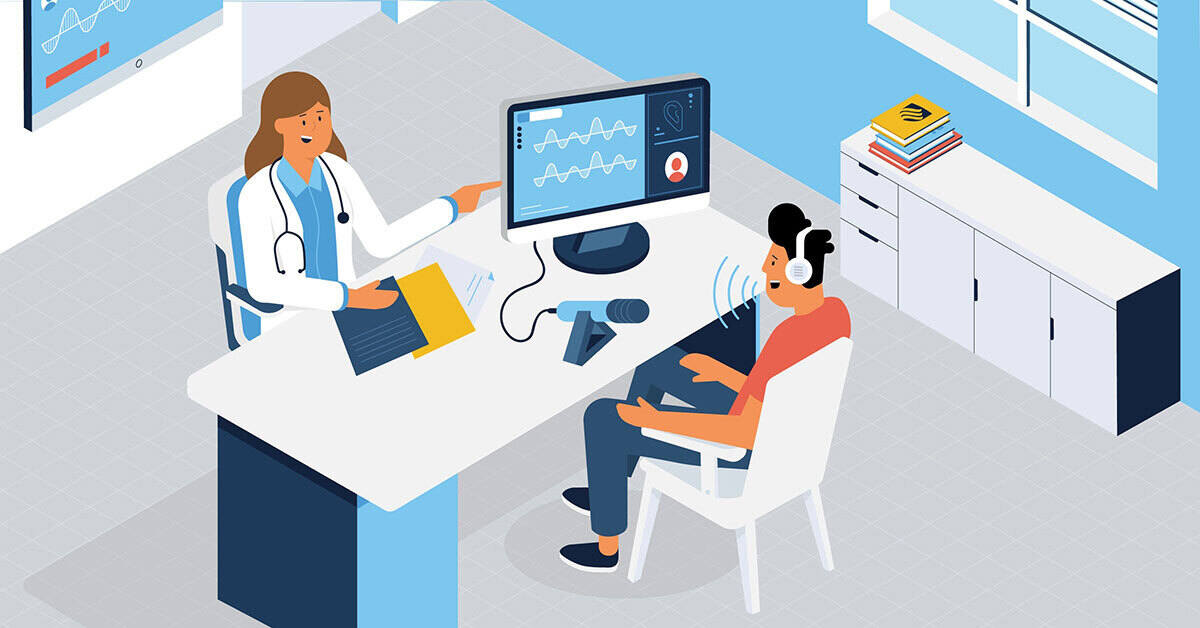Can a Speech Pathologist Help with Stuttering? Here’s What You Need to Know
Can a Speech Pathologist Help with Stuttering? Here’s What You Need to Know
Blog Article
How a Speech Pathologist Can Assist Improve Interaction Abilities
Reliable interaction is a keystone of specialist and individual success, yet several people face challenges that impede their ability to share themselves clearly. A speech pathologist is geared up to deal with these obstacles with targeted evaluation and intervention techniques tailored per person's requirements. By utilizing evidence-based restorative techniques, they not only function to boost speech and language conditions however also enhance overall communicative competence. Understanding the complex function of a speech pathologist exposes how their know-how can transform lives, inviting a closer exam of the certain techniques and outcomes connected with their method.
Comprehending Communication Problems
Comprehending interaction conditions is vital for recognizing how they influence individuals' capacity to express themselves and involve with others. Communication conditions incorporate a variety of problems that affect speech, language, and social communication, often impeding reliable communication. These conditions can arise from different variables, including neurological problems, developing delays, physical disabilities, or emotional issues.
Speech conditions might manifest as problems in fluency, articulation, or voice production, impacting just how words are pronounced or spoken. Language problems, on the various other hand, involve difficulties in understanding or making use of language, which can impede both non-verbal and verbal interaction. Social interaction disorders are defined by problems in the practical facets of interaction, such as taking turns in conversation or understanding social hints.
The repercussions of interaction problems are profound, impacting not just the individual's ability to communicate thoughts and feelings however likewise their social partnerships, instructional possibilities, and overall quality of life. Awareness of these conditions can cultivate compassion and assistance, urging reliable approaches for interaction and involvement. Recognizing the complexities of interaction problems is an important step towards promoting inclusivity and dealing with the needs of those affected.
Duty of a Speech Pathologist
Speech pathologists often play a vital duty in treating and identifying communication disorders, employing an array of evidence-based techniques tailored to every person's needs. These professionals work with people across the life-span, from youngsters with speech hold-ups to adults recuperating from strokes or stressful mind injuries. Their knowledge encompasses a range of interaction issues, including expression, fluency, language, and voice disorders.
In healing setups, speech pathologists utilize structured interventions developed to enhance communication abilities. They might implement strategies such as speech exercises, language games, and social communication training to help with renovations in meaningful and receptive language capacities. Speech Pathologist. Furthermore, they educate clients and their family members regarding reliable communication methods and flexible methods to browse day-to-day communications
Beyond direct treatment, speech pathologists team up with other health care experts, instructors, and caretakers to guarantee a thorough strategy to therapy. They promote for clients by providing resources and assistance, enabling individuals to achieve their interaction goals and enhance their general top quality of life. As specialists in the field, speech pathologists are crucial in promoting efficient communication, promoting independence, and boosting social involvement for those with interaction obstacles.
Evaluation and Medical Diagnosis Refine
The evaluation and medical diagnosis process conducted by speech pathologists normally includes an extensive evaluation to recognize interaction problems accurately. This process begins with a detailed case history, where the medical professional gathers significant details concerning the person's medical, instructional, and developing history. Recognizing the context of the individual's interaction difficulties is vital for an exact diagnosis.
Following the medical history, speech pathologists utilize standard examinations and casual analyses to assess different aspects of communication, including speech audio manufacturing, language understanding, expressive language, and social communication abilities. These evaluations are tailored to the person's age and specific issues, giving important data for evaluation.
Monitoring is additionally a crucial component of the analysis process, as it enables the medical professional to see direct just how the specific communicates in all-natural setups. Furthermore, interviews with household participants and instructors can give understanding into the person's interaction obstacles throughout different environments.
Once the analysis is total, the speech pathologist synthesizes the searchings for to determine a diagnosis and suggest suitable treatments. This comprehensive analysis procedure makes sure that people receive targeted assistance tailored to their unique interaction demands, laying the structure for effective healing techniques.
Restorative Strategies and Methods
Various healing methods and techniques are employed by speech pathologists to address a range of communication conditions efficiently. One widely made use of technique is articulation treatment, which focuses on remedying speech appears with repeating and visual signs. This strategy is particularly beneficial for people with speech sound problems.
One more efficient technique is language intervention, which enhances both meaningful and receptive language skills. This might entail interactive activities that advertise vocabulary growth, sentence structure understanding, and conversational abilities. In addition, speech pathologists typically utilize social skills training to enhance practical language capabilities, allowing people to navigate social communications much more effectively.
Fluency shaping and stuttering adjustment methods are specifically designed to help those experiencing fluency conditions. These techniques help clients establish smoother speech patterns and take care of the emotional and physical elements of stuttering.
Additionally, augmentative and different communication (AAC) systems are utilized for people with serious communication check it out problems. These systems, which can include gestures, icons, or digital devices, give vital assistance for reliable communication.
Advantages of Speech Therapy

Additionally, speech treatment can assist in developing crucial listening and understanding abilities, fostering much better communication in conversations. People with cognitive-communication problems can also benefit, as treatment concentrates on enhancing memory and analytic abilities, necessary for reliable interaction.
Another essential aspect is the emotional support offered throughout treatment sessions. Speech pathologists produce a secure atmosphere, motivating patients to conquer anxiety and irritation pertaining to their communication concerns. This support can cause enhanced self-confidence and total mental wellness.
In addition, early intervention through speech treatment can avoid further problems, making sure that individuals reach their complete communicative possibility. Generally, the benefits of speech treatment extend beyond mere speech improvement, favorably influencing various dimensions of life for those impacted by interaction troubles.
Conclusion
In official source summary, speech pathologists play a vital function in addressing communication problems with evaluation, diagnosis, and tailored restorative treatments. By employing evidence-based methods, these specialists boost people' speech and language abilities, fostering improved quality, fluency, and social communication abilities. The benefits of very early intervention underscore the significance of looking for help from speech pathologists, as their expertise can considerably enhance communicative capacity, eventually resulting in greater success in both personal and professional spheres.

Speech pathologists often play a crucial role in dealing with and diagnosing communication conditions, utilizing a range of evidence-based techniques tailored to each person's needs. As experts in the field, speech pathologists are essential in fostering reliable communication, advertising independence, and improving social engagement for those with interaction obstacles.

Report this page